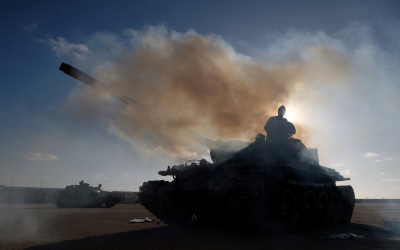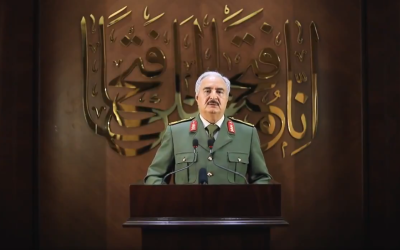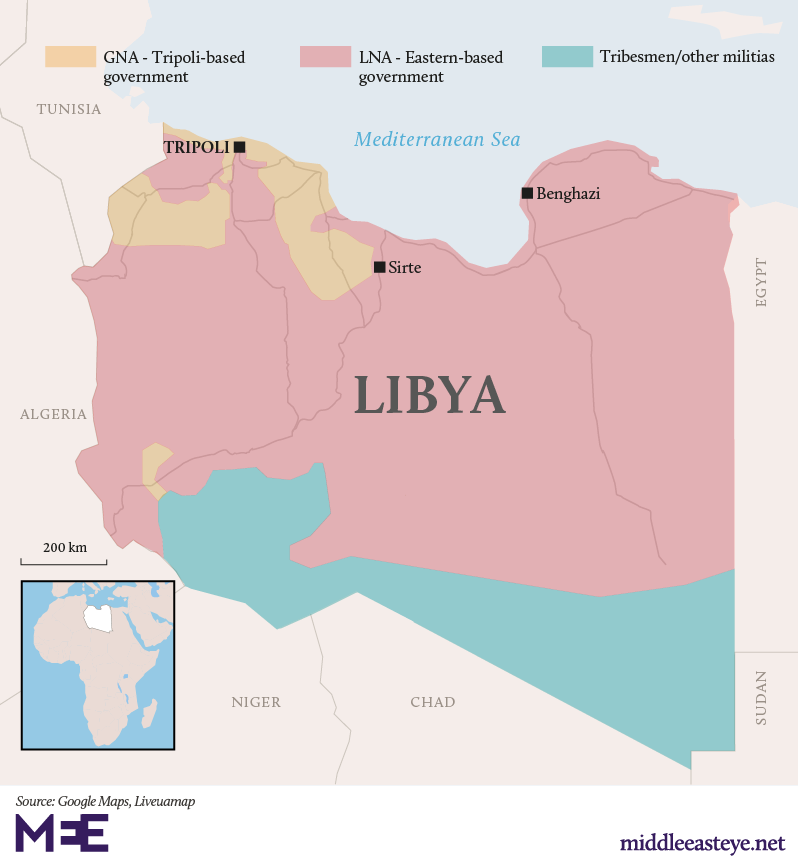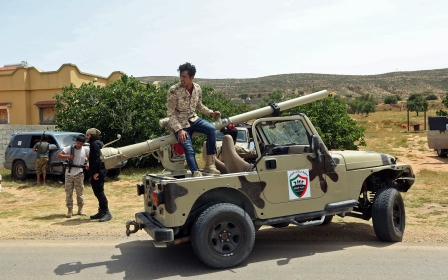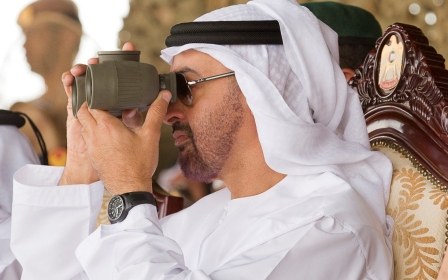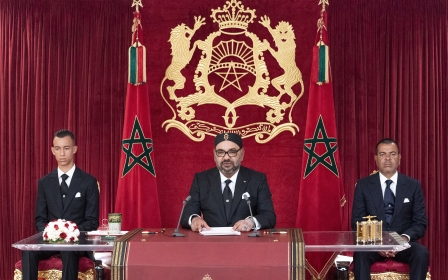US accuses Russia of 'worsening' Libya conflict, sending mercenaries and equipment
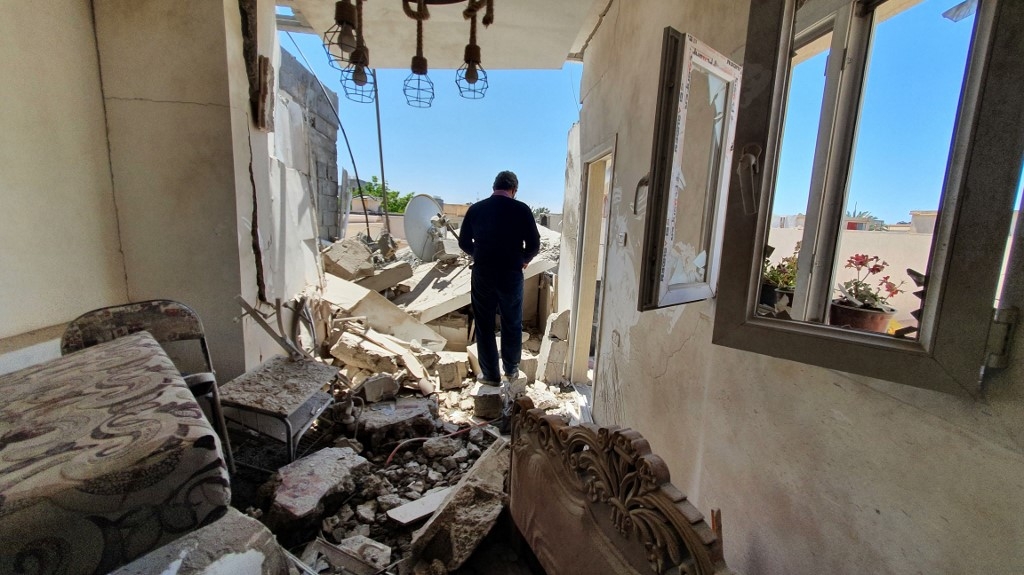
The United States accused Russia of worsening the situation in Libya by sending Syrian mercenaries and military equipment to support Khalifa Haftar's offensive against the internationally recognised government.
Chris Robinson, a State Department official who focuses on Russia, said on Thursday that Moscow's support for Haftar had "led to a significant escalation of the conflict and a worsening of the humanitarian situation in Libya".
His comments came a day after a UN report said that as many as 1,200 military contractors from Russia's Wagner Group were actively fighting alongside Haftar's self-styled Libyan National Army (LNA).
'They do possess very heavy and advanced weapons, and we've seen ... photos of really advanced equipment that private companies don’t tend to have [which] really illustrates that this is the Russian government operating'
- Christopher Robinson, US State Department
The Wagner Group, a shadowy Kremlin-backed private military contractor, has also been involved in the Syrian conflict, where Moscow backs President Bashar al-Assad against rebels.
The group is believed to be active as well in Sudan and the Central African Republic, where it reportedly serves as President Faustin-Archange Touadera's personal security detail.
The Wagner Group is "often misleadingly referred to as a Russian private security company, but in fact it's an instrument of the Russian government, which the Kremlin uses as a low-cost and low-risk instrument to advance its goals", Robinson told reporters.
'Russians working with Assad'
Jim Jeffrey, the US special envoy for Syria, warned that the Libyan conflict could get even more complicated because of Russian involvement.
"We know that, certainly the Russians are working with Assad to transfer militia fighters - possibly third country, possibly Syrian - to Libya, as well as equipment."
Officials were unable to share the total number of foreign fighters thought to be fighting for Haftar in Libya, but Robinson said Washington had evidence that advanced weapons had been sent to LNA forces.
"They do possess very heavy and advanced weapons, and we’ve seen them in public media accounting, and social media that follow the conflicts have captured photos of really advanced equipment that private companies don’t tend to have [which] really illustrates that this is the Russian government operating the Wagner [Group]," Robinson said.
Currently, Libya is split between areas controlled by the internationally recognised Government of National Accord (GNA) in Tripoli and territory held by Haftar's forces.
Late last month, Haftar declared himself the ruler of Libya with a "popular mandate" from the people.
The LNA launched an offensive on Tripoli more than a year ago, after having taken swaths of northwestern Libya.
Haftar's forces are backed by the United Arab Emirates, Egypt and Russia, while the Tripoli-based government is supported by Turkey and, to a lesser extent, Qatar.
'We don't support it'
In the briefing, Henry Wooster, deputy assistant secretary at the State Department's Bureau of Near Eastern Affairs, said Washington did not support Haftar's advance on the Libyan capital, stressing that the offensive is diverting resources from US counterterrorism initiatives.
"It also brings about a humanitarian crisis. Long story short, it's bad news. We don't support it, and we don't support him doing this," Wooster said.
President Donald Trump called Haftar last year, in the first weeks of the offensive, in a move that some diplomats took as a sign Washington might be backing the former Gaddafi-era military officer. Since then, the United States has urged all sides to de-escalate, a call that has fallen on deaf ears.
When asked if Haftar’s foreign backers might persuade him to end the offensive, given recent setbacks on the field, Wooster said: "I don’t think that in the near-term offing, at least in the foreseeable future, there’s any likely prospect whatsoever that that would happen".
US officials also expressed discomfort about ties between Haftar and Assad.
"There is a very troubling other element here and that is ... Haftar's establishment of so-called diplomatic relations with the Assad regime, which is very much a part of the piece of the question of Syrian mercenaries, at least on his side of the equation," Wooster said.
Haftar opened an embassy in Syria in March and called on Damascus to unite in their common fight against Turkey-backed militant groups. Turkey has long called for the departure of Assad and has backed Syrian rebels against government forces.
Assad has looked to shed his country’s pariah status and regain Arab support. The UAE reopened its Damascus embassy in December 2018 and has forged closer ties after once supporting rebels fighting against Assad.
Middle East Eye propose une couverture et une analyse indépendantes et incomparables du Moyen-Orient, de l’Afrique du Nord et d’autres régions du monde. Pour en savoir plus sur la reprise de ce contenu et les frais qui s’appliquent, veuillez remplir ce formulaire [en anglais]. Pour en savoir plus sur MEE, cliquez ici [en anglais].


